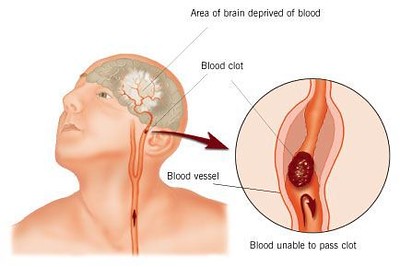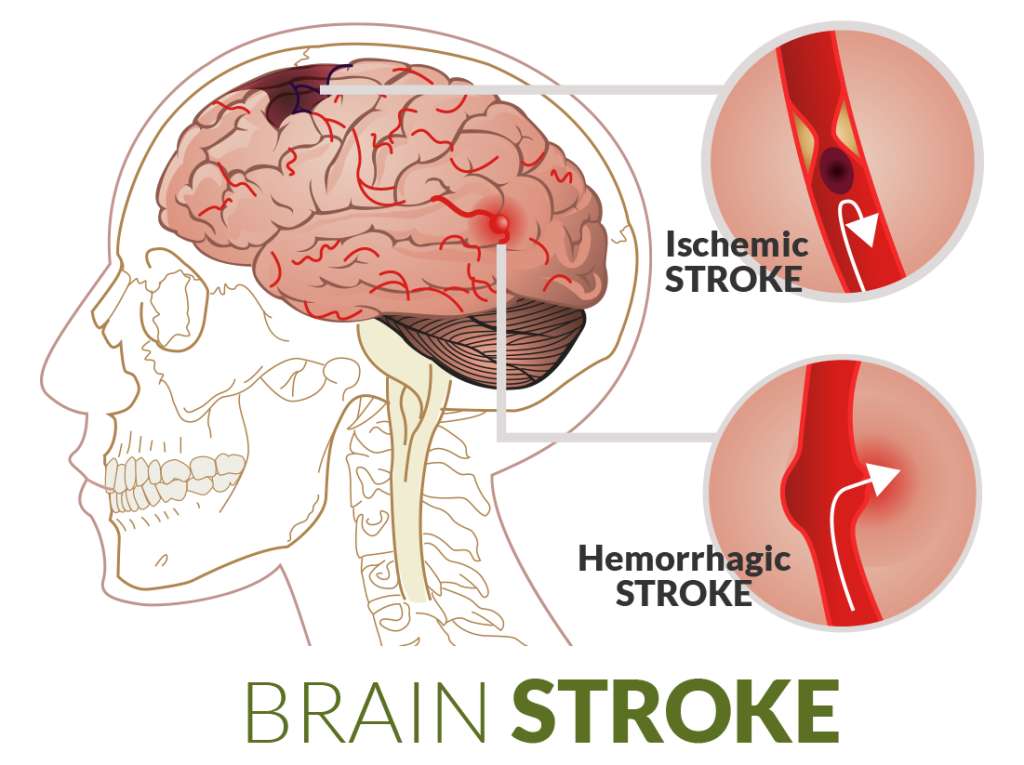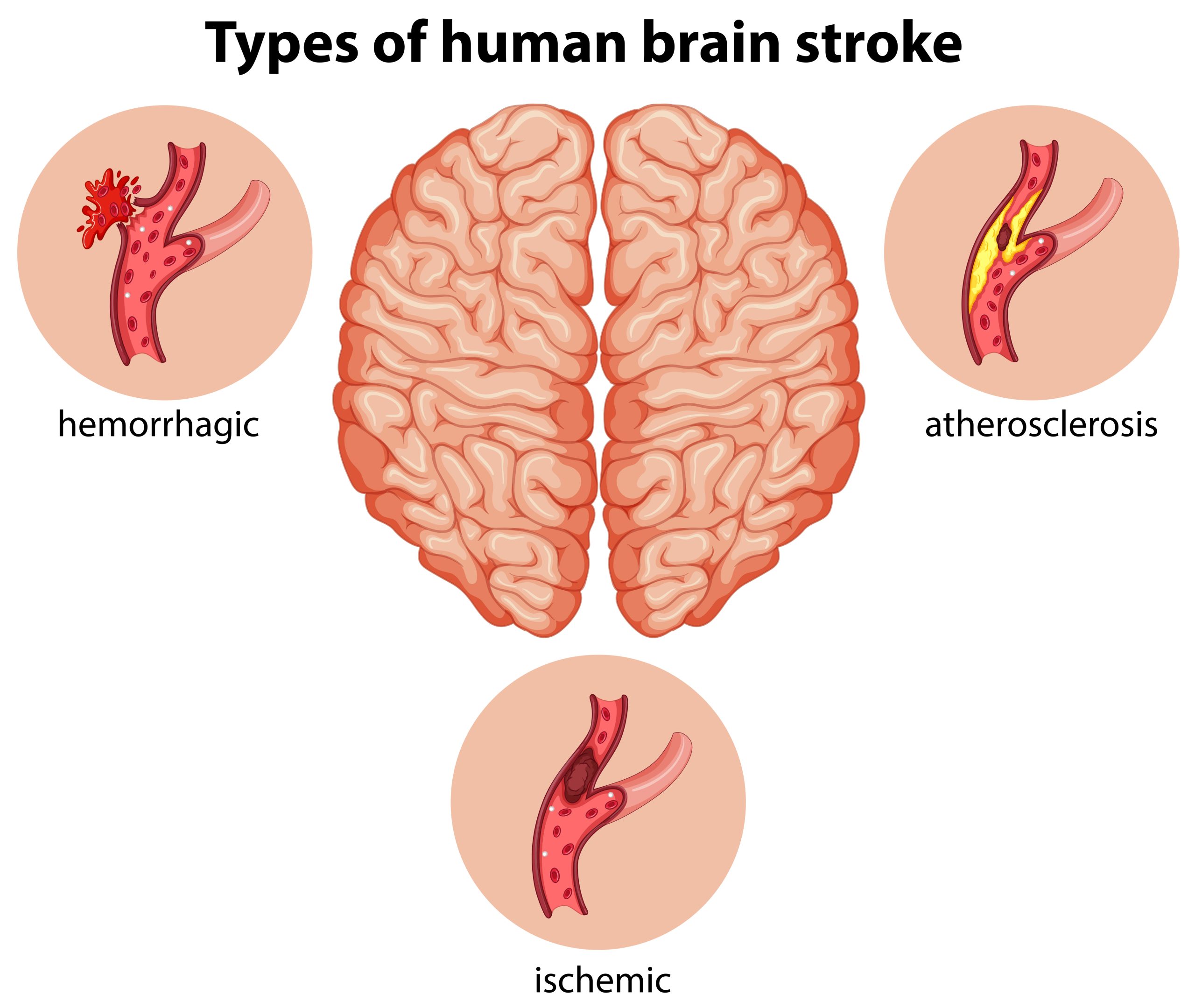Strokes are a leading cause of serious long-term disability and one of the most alarming medical emergencies. Understanding and recognizing early warning signs is critical, as quick action can significantly reduce the risk of severe outcomes. Surprisingly, the body often sends subtle signals up to a month before a stroke occurs. These symptoms may seem ordinary or unrelated at first, but ignoring them could be dangerous.
This article explores the key warning signs to watch out for and explains how timely medical attention can save lives.
1. Sudden Numbness or Weakness
One of the hallmark signs of a potential stroke is sudden numbness or weakness, particularly on one side of the body. This may affect the face, arm, or leg and is often mistaken for fatigue or muscle strain. However, the asymmetrical nature of this symptom should raise a red flag.
For instance, if you notice that your arm feels weak when you try to pick up an object, or your leg feels heavy when walking, pay close attention. Similarly, drooping on one side of your face, such as when you smile or talk, can be a telltale sign. These symptoms result from reduced blood flow to specific areas of the brain, affecting muscle control and sensation.

2. Severe, Unexplained Headaches
While headaches are common and usually harmless, sudden and intense headaches without a clear cause could signal something more serious. Known as “thunderclap headaches,” these can feel like the worst headache of your life, and they may not respond to usual remedies like painkillers or rest.
This type of headache often indicates a problem with blood vessels in the brain, such as a rupture or blockage, both of which are associated with strokes. It’s essential not to dismiss severe headaches, especially if they occur alongside other symptoms like nausea, dizziness, or blurred vision.
3. Dizziness and Difficulty Walking
Have you ever felt lightheaded or struggled to maintain your balance for no apparent reason? While these sensations can occur due to dehydration or low blood sugar, persistent dizziness or difficulty walking may indicate an impending stroke.
Strokes can disrupt the brain’s ability to coordinate movement, leading to a sense of vertigo or unsteadiness. This symptom might also be accompanied by trouble standing upright or feeling like the room is spinning. Such issues should never be brushed off, especially if they escalate or occur frequently.
4. Vision Problems
Blurred or double vision, sudden loss of vision in one or both eyes, or difficulty focusing are significant warning signs of a stroke. The eyes and vision are closely connected to the brain, and any disruption in blood flow to areas responsible for sight can lead to visual disturbances.
You might notice that objects appear fuzzy, your field of vision narrows, or you see flashes of light. These changes can occur gradually or suddenly and are often dismissed as temporary issues. However, they warrant immediate medical evaluation, particularly when combined with other stroke symptoms.
5. Unusual Fatigue
Feeling excessively tired without a clear reason is another subtle but concerning sign. While fatigue is common due to stress or lack of sleep, unexplained exhaustion could indicate reduced oxygen supply to the brain.
This type of fatigue often feels overwhelming and may interfere with daily activities, making even simple tasks seem exhausting. If you find yourself unusually tired despite getting adequate rest, consider this a potential warning sign.

6. Changes in Sleep Patterns
Many individuals report significant disruptions in their sleep before experiencing a stroke. This can include difficulty falling asleep, staying asleep, or waking up frequently during the night.
Insomnia and other sleep disturbances can stem from underlying issues in the brain’s blood flow regulation. They may also be linked to anxiety or stress, which sometimes accompany other pre-stroke symptoms.
7. Difficulty Swallowing
Trouble swallowing, medically known as dysphagia, is another warning sign. You might feel as though food or liquids are getting stuck in your throat, or you may experience a choking sensation.
This occurs because strokes can affect the muscles and nerves involved in swallowing. If you notice persistent swallowing difficulties, especially alongside other symptoms, seek medical attention promptly.

Why Recognizing These Signs Matters
Understanding these symptoms is essential because strokes occur when blood supply to a part of the brain is interrupted, either by a clot (ischemic stroke) or a burst blood vessel (hemorrhagic stroke). This interruption can cause irreversible damage if not addressed quickly.
Early detection provides an opportunity for medical intervention, such as administering clot-busting drugs or performing procedures to restore blood flow. Time is of the essence in minimizing the long-term effects of a stroke.
What to Do If You Notice These Symptoms
If you or someone you know experiences any of the warning signs mentioned above, don’t hesitate to act. Call emergency services immediately, even if the symptoms seem to resolve on their own. Transient Ischemic Attacks (TIAs), also known as “mini-strokes,” often precede full-blown strokes. Although TIAs resolve quickly, they are serious and indicate an increased risk of future strokes.
Doctors often use the acronym FAST to help people recognize and respond to stroke symptoms:
- Face: Is one side of the face drooping?
- Arms: Is there weakness or inability to lift one arm?
- Speech: Is speech slurred or difficult to understand?
- Time: Act quickly and call for emergency help.

Reducing Your Stroke Risk
Prevention is always better than cure. Here are some steps you can take to lower your risk of a stroke:
- Maintain a Healthy Diet: Focus on fruits, vegetables, whole grains, and lean proteins. Avoid excessive salt, sugar, and unhealthy fats.
- Exercise Regularly: Aim for at least 30 minutes of moderate activity most days of the week.
- Manage Chronic Conditions: Keep conditions like high blood pressure, diabetes, and high cholesterol under control through medication and lifestyle changes.
- Quit Smoking and Limit Alcohol: Both habits can increase your stroke risk.
- Regular Check-ups: Visit your doctor for routine health assessments and screenings.
Your body often provides early warnings before a serious health crisis like a stroke. Paying attention to unusual symptoms and acting quickly can make all the difference. By staying informed, you can take proactive steps to protect yourself and your loved ones from the devastating effects of strokes.
Remember, when it comes to strokes, time saved is brain saved. Recognize the signs, act fast, and prioritize your health.
